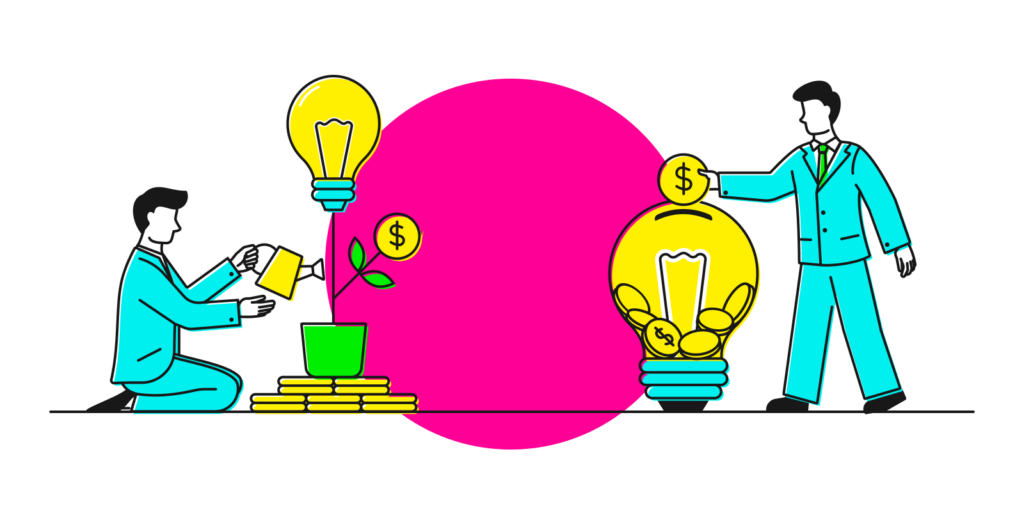Political, Economic, and Technological (PET) Analysis
PET stands for Political, Economic, and Technological factors, the three key external forces that shape a business environment. In today’s rapidly evolving global landscape, understanding the interplay of political, economic, and technological factors is essential for comprehending the complexities that shape our world. These dimensions are deeply interconnected, influencing each other in ways that can either propel or hinder societal progress. It is always helpful to analyse and delve into the nuances of these factors, exploring their current states, interrelations, and potential futures. By systematically analysing each of these factors, businesses can gain valuable insights into potential opportunities, threats, and trends that might impact their performance. This comprehensive understanding empowers us to: Make informed strategic decisions: A PET analysis provides a robust foundation for developing long-term business strategies, optimising product development, and identifying the best course of action for market expansion. Proactively manage risks and seize opportunities: By anticipating potential disruptions from political instability, economic downturns, or technological advancements, businesses can mitigate threats and capitalise on emerging opportunities to gain a competitive edge. Conduct effective market research: PET analysis is a springboard for in-depth market research. It provides context for understanding consumer behaviour, competitor landscape, and overall market trends, ultimately informing more intelligent resource allocation and marketing strategies. The PET Framework Political Factors in Business Operations The political landscape significantly influences business operations, affecting everything from regulatory compliance to strategic planning. One of the primary considerations under this umbrella is government policies. Regulations on taxation, labour laws, environmental standards, and trade policies can dramatically impact a business’s cost structure, market access, and overall profitability. For instance, changes in corporate tax rates can alter a company’s net income, while stringent environmental regulations may necessitate additional investments in sustainable practices. Businesses must stay informed about potential policy shifts and upcoming changes to align their strategies accordingly. This awareness is particularly crucial for industries heavily regulated by government policies, such as finance, healthcare, and energy (Grant Thornton, 2023). Political stability is another critical factor. Environments characterised by unrest, corruption, or frequent governmental changes can create significant uncertainty, which in turn can hinder business growth. Companies operating in such volatile contexts may need to adopt robust risk mitigation strategies, such as diversifying their operations across multiple regions or investing in comprehensive insurance plans. The World Bank (2021) notes that political instability can deter foreign investment and disrupt supply chains, leading to increased operational costs and decreased market confidence. International relations also play a pivotal role. Trade agreements, sanctions, and geopolitical tensions can influence the availability of resources, market access, and the overall business climate. For businesses with a global footprint, understanding these dynamics is essential for making informed decisions about international expansion or sourcing. For example, trade agreements can open new markets and reduce tariffs, enhancing a company’s competitive edge. Conversely, geopolitical tensions or sanctions can restrict market access and complicate supply chains. The Council on Foreign Relations (2022) highlights that geopolitical risks are increasingly shaping global business strategies, emphasising the need for companies to incorporate geopolitical analysis into their planning processes. Political factors are a cornerstone of the external environment that businesses must navigate. From understanding and anticipating government policy changes to assessing the stability of the operating environment and analysing international relations, these elements collectively influence strategic decisions and operational outcomes. By staying attuned to the political landscape, businesses can better prepare for risks and capitalise on opportunities. Economic Factors Influencing Business Performance The broader economic environment plays a pivotal role in shaping business performance, requiring companies to remain vigilant and adaptable to various economic conditions. Economic Growth Economic growth in Ghana plays a crucial role in shaping business performance by influencing consumer demand and spending power. When the economy is robust, with rising disposable incomes, consumers are more likely to increase their spending, leading to higher sales and revenues for businesses. This dynamic was evident in Ghana’s recovery period following the 2008 global financial crisis. As the economy rebounded, consumer spending surged, driving growth across various sectors, including retail, manufacturing, and services (Organisation for Economic Co-operation and Development [OECD], 2017). Conversely, during economic downturns, such as the one induced by the COVID-19 pandemic, consumer spending declines significantly. This downturn in consumer activity results in reduced sales and potential market stagnation for businesses. The COVID-19 pandemic severely impacted Ghana’s economy, causing disruptions across many industries, from tourism to agriculture. Businesses faced declining revenues as consumer confidence waned and spending power diminished (International Monetary Fund [IMF], 2021). To navigate these economic fluctuations, businesses in Ghana need to adopt adaptive strategies. During economic downturns, diversifying product lines can help mitigate risks by reaching new market segments. For instance, companies that traditionally focused on non-essential goods might pivot to essential goods and services to maintain revenue streams. Additionally, cutting operational costs through efficiency improvements and strategic downsizing can help businesses weather periods of reduced consumer spending. Inflation Rising inflation in Ghana can increase production costs, which in turn can squeeze profit margins if businesses cannot pass these costs onto consumers. For instance, the inflation spike in Ghana during 2021-2022 was primarily driven by supply chain disruptions and rising energy prices. These disruptions, exacerbated by global factors and domestic challenges, forced many businesses to adjust their pricing strategies and manage operational efficiencies to cope with higher costs (Bank of Ghana, 2022). In such a context, businesses must employ various strategies to mitigate the impact of inflation. These strategies may include improving operational efficiencies, renegotiating supplier contracts, and finding cost-effective alternatives for raw materials. Additionally, businesses might explore adjusting their product offerings to focus on higher-margin products or services that can better absorb increased costs. Interest Rates Interest rate fluctuations in Ghana also profoundly impact businesses’ access to capital. The Bank of Ghana often adjusts interest rates to control inflation and stabilise the economy. For example, higher interest rates, implemented to curb rising inflation, can lead to increased borrowing costs for businesses. This situation makes it more expensive for companies to finance their operations and investment projects, potentially slowing
Political, Economic, and Technological (PET) Analysis Read More »




